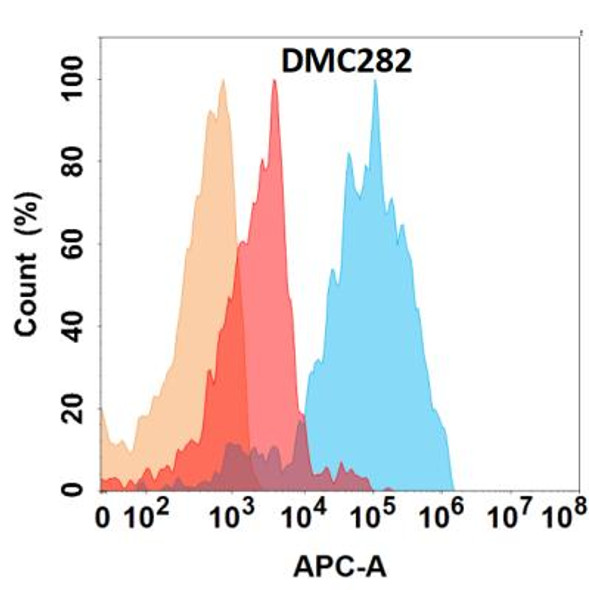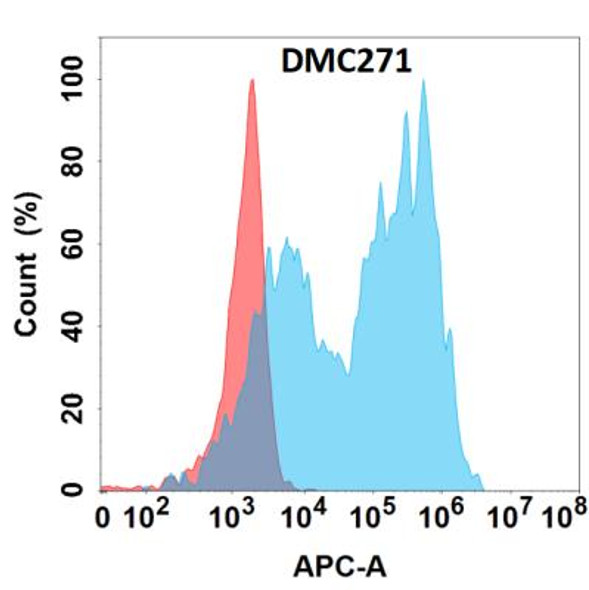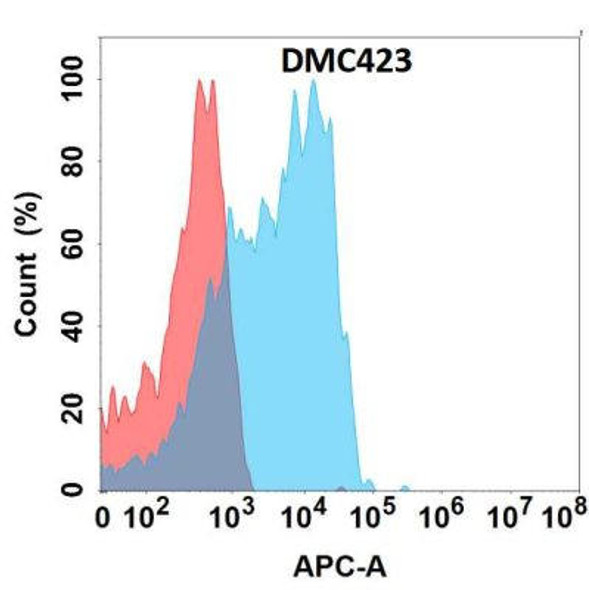Anti-FLT3LG Chimeric Recombinant Rabbit Monoclonal Antibody (HDAB0265)
- SKU:
- HDAB0265
- Product Type:
- Rabbit Monoclonal Antibody
- Antibody Type:
- Monoclonal Antibody
- Size:
- 100 μg
- Reactivity:
- Human
- Host Species:
- Rabbit
- Antibody Isotype:
- Rabbit/Human Fc chimeric IgG1
- Clone:
- DMC421
- Synonyms:
- FLT3LG, FL, FLT3L, Flt3 ligand
Description
system_update_altDatasheet
| SKU: | HDAB0265 |
| Size: | 100 µg |
| Clonality: | Monoclonal |
| Clone: | DMC421 |
| Synonyms: | FLT3LG, FL, FLT3L, Flt3 ligand |
| Applications: | Flow Cyt |
| Recommended Dilution: | Flow Cyt 1:100 |
| Host Species: | Rabbit |
| Isotype: | Rabbit/Human Fc chimeric IgG1 |
| Reactivity: | Human |
| Purification Method: | Purified from cell culture supernatant by affinity chromatography |
| Formulation: | Powder |
| Buffer: | 1XPBS |
| Storage: | Store at -20°C to -80°C for 12 months in lyophilized form. After reconstitution, if not intended for use within a month, aliquot and store at -80°C (Avoid repeated freezing and thawing).Lyophilized antibodies are shipped at ambient temperature. |
| Usage: | Research use only |
| Background: | FMS-like tyrosine kinase 3 ligand (Flt-3 Ligand) is also known as FL, Flt3L and FLT3LG, is an α-helical cytokine that promotes the differentiation of multiple hematopoietic cell lineages. FLT3LG is expressed as a noncovalentlylinked dimer by T cells and bone marrow and thymic fibroblasts. Each 36 kDa chain carries approximately 12 kDa of N- and O- linked carbohydrates. FLT3LG is structurally homologous to stem cell factor (SCF) and colony stimulating facor 1 (CSF-1). FLT3LG acts as a growth factor that increases the number of immune cells by activating the hematopoietic progenitors. It also induces the mobilization of the hematopoietic progenitors and stem cells in vivo which may help the system to kill cancer cells. FLT3LG induces the expansion of monocytes and immature dendritic cells as well as early B cell lineage differentiation. FLT3LG cooperates with IL2, IL6, IL7, and IL15 to induce NK cell development and with IL3, IL7 and IL11 to induce terminal B cell maturation. Animal studies also show FLT3LG to reduce the severity of experimentally induced allergic inflammation. FLT3LG is crucial for steady-state pDC and cDC development. A lack of FLT3L results in low levels of DCs. |






